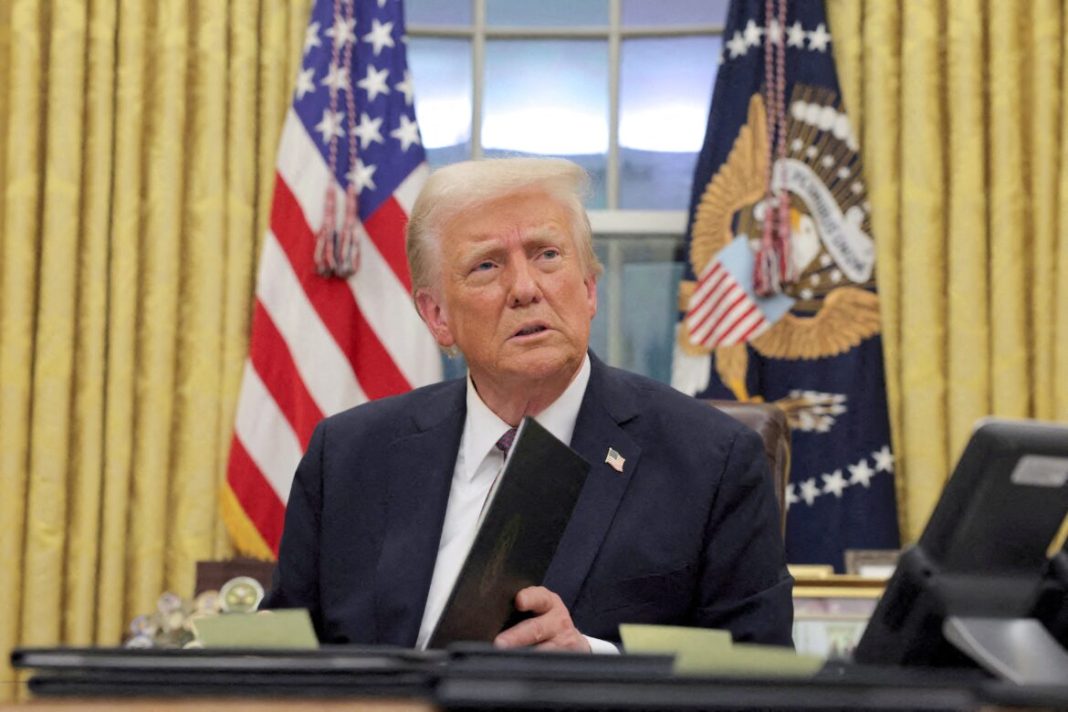WASHINGTON, USA — U.S. President Donald Trump’s long-standing bid to eliminate birthright citizenship is once again at the centre of a heated legal battle, as the Supreme Court on Thursday, May 15, 2025, began hearing arguments on whether his executive order attempting to revoke the constitutional guarantee can stand.
Shortly after his inauguration in January, Trump signed an executive order terminating birthright citizenship—a policy that grants U.S. citizenship to anyone born on American soil, regardless of their parents’ immigration status.
The order was swiftly blocked by federal courts after 18 states and several civil rights groups filed lawsuits challenging its constitutionality.
Now, Trump is appealing those rulings, and if the Supreme Court sides with him, it could significantly expand presidential power, enabling the use of executive orders to fulfil campaign pledges without congressional approval and with limited judicial oversight.
The president has continued to voice his stance forcefully, reiterating his views in a recent post on Truth Social.
“Birthright Citizenship was not meant for people taking vacations to become permanent Citizens of the United States of America,” he wrote.
“The United States of America is the only Country in the World that does this, for what reason, nobody knows — But the drug cartels love it!”
He added: “We are, for the sake of being politically correct, a STUPID Country… and it is yet another point that leads to the dysfunction of America.”
In the same post, Trump argued that the original intent of birthright citizenship, enshrined in the 14th Amendment of the U.S. Constitution, was specifically to address the rights of formerly enslaved people following the Civil War—not modern immigration.
“Birthright Citizenship is about the babies of slaves,” Trump stated.
“It had nothing to do with Illegal Immigration for people wanting to SCAM our Country.”
The 14th Amendment, ratified in 1868, reads: “All persons born or naturalized in the United States, and subject to the jurisdiction thereof, are citizens of the United States and of the State wherein they reside.” Legal scholars widely interpret this clause as offering universal citizenship to those born on U.S. soil.
Trump, however, insists the provision has been misapplied in the context of undocumented immigration and says ending the policy is essential to curbing what he describes as “abuse” of U.S. citizenship laws.
Critics, including legal experts and civil liberties groups, argue that Trump lacks the constitutional authority to alter birthright citizenship through executive action.
They contend that any change would require a constitutional amendment—a process involving approval by two-thirds of Congress and ratification by three-fourths of the states.
Even if Trump prevails in the current case, he is expected to face continued legal hurdles from lower courts and constitutional scholars.
“This executive order represents a direct challenge to a foundational principle of American citizenship,” said Linda Chavez, a legal analyst and former official under President Reagan.
“Any attempt to repeal or redefine the 14th Amendment through executive fiat will almost certainly provoke a protracted legal and political fight.”
The case comes at a politically sensitive time, as immigration remains one of the most divisive issues ahead of the 2026 midterms.
For Trump and his supporters, the battle over birthright citizenship has become a symbol of broader efforts to reshape America’s immigration system.
The Supreme Court is expected to deliver a ruling later this year, a decision that could have sweeping implications for immigration policy and the limits of presidential power.







![Honouring a Rare Soul: Celebrating the Life of AVM Terry Omatsola Okorodudu [MUST READ] Air Vice Marshal Terry Omatsola Okorodudu](https://www.thetrentonline.com/wp-content/uploads/2026/01/Joan-and-Bidemi-Okorodudu-The-Trent-100x70.jpg)